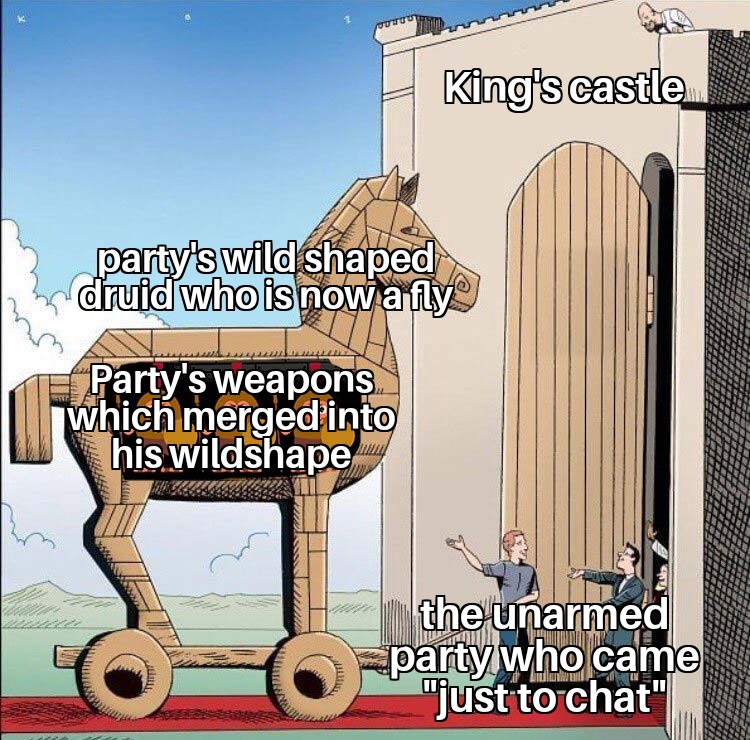this post was submitted on 15 Dec 2023
328 points (98.5% liked)
RPGMemes
13838 readers
846 users here now
Humor, jokes, memes about TTRPGs
founded 2 years ago
MODERATORS
you are viewing a single comment's thread
view the rest of the comments
view the rest of the comments

This is the first time I have heard of FATE and that is interesting! From what I'm reading, it's highly free-form, with stuff normally associated with characters or the setting being referred to as aspects (like some kind of adjective or attributes of a programming class), which can be called upon to give bonuses provided you have enough fate points). The free-form part comes from the aspects being basically anything related to the characters/setting at hand. I guess it does put a lot of onus on both the DM and the player to collaboratively figure out how to find creative solutions to problems, but in a way that isn't mechanically restricted.
From what I've seen from the suggestions so far, rules-lite/abstract helps to mitigate some of the rube-goldbergy-mad-contraption-tzeentchian-ness that seems to be inherent in rpgs (and probably human nature lol), but not by "restricting" players in a strictly defined box of rules. Rather, rules-lite systems allow for the rube-goldbergy-mad-contraption-tzeentchian-ness to feel less like breaking the system and more like building the system (within reason and the DM's judgment), which is huge. So either that or a heavy narrative focus seems to work well in theory.